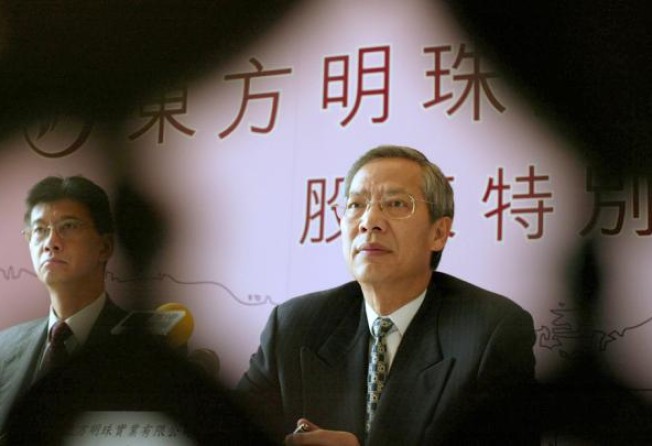
Energy firm chief said to meet ICAC agents
Pearl Oriental Oil chairman Wong Kwan, whose rags to riches story once included wealth of HK$15 billion, in the spotlight again

Wong Kwan, the chef-turned-entrepreneur who is chairman and chief executive of listed energy company Pearl Oriental Oil, is in the spotlight again after having reportedly met local anti-graft agents.

Many Chinese-language press reports over the past two days have indicated that Wong was invited to have a coffee and a lengthy chat with the officials of the Independent Commission Against Corruption on Tuesday before he could return home.
The South China Morning Post yesterday called Wong's mobile phone but the call was forwarded to voice mail. The ICAC did not comment on the case.
Pearl Oriental Oil suspended trading on Tuesday "pending the release of an announcement from the company in relation to inside information". The company has issued no further statements and its shares remain suspended from trading. They last traded at 63 HK cents.
Wong, a mainlander, came to Hong Kong in the 1960s and first worked as a kitchen helper in small restaurants. But a talent for cooking pushed him up the ranks and within seven years he went on to become the master chef of several five-star hotels and deluxe restaurant chains.
Many stockbrokers gave him the nickname "Master Chef Kwan" and he was constantly praised by those who tasted his cooking.
In the 1980s, Wong left the heat of the kitchen and turned to property investments. With personal savings of HK$150,000 and a few social connections in the mainland and Hong Kong, he set up his flagship property company Pearl Oriental Holdings - which is not related to the Pearl Oriental Oil he currently chairs - to buy and renovate old buildings, which were then sold for a quick profit.
That brought a fortune to the former chef, and the property firm grew to become a big player in the market, ploughing huge sums of money into luxury real estate at the height of the property boom in the mid-1990s.
The company once spent HK$1 billion on several prime sites in the space of a few weeks, including HK$540 million in 1996 for possibly Hong Kong's most prestigious address, Genesis on the Peak.
A year later, the firm paid HK$375 million for Skyhigh on the Peak - the former house for HSBC senior executives - from former Yaohan boss Kazuo Wada.
They were heady days for Wong and brokers believe his wealth at the time could have reached HK$15 billion.
But the Asian financial crisis in mid-1997 changed all that. Property prices began to plummet and Wong's property arm began a steep descent into the red while many of his prime property including Genesis and Skyhigh was repossessed by creditor banks and sold to repay delinquent bank loans.
After that, Wong left the property sector and maintained a low profile for some years.
He resurfaced in 2006 with the purchase of a controlling stake in Hong Kong-listed logistics firm China Merchants DiChain (Asia) for HK$80 million, and later renaming the firm Pearl Oriental Oil and focusing on energy-related businesses.
Pearl Oriental Oil's annual report states the company owns oil and gas field assets worth HK$2.7 billion. The core business of oil and gas represents more than 84 per cent of the group's total assets, and it plans to acquire more oilfield projects in Central Asia, Southeast Asia, Africa and North America.
In September, the company announced a possible acquisition of an oil field in Kazakhstan.
Wong holds 24.63 per cent of Pearl Oriental Oil and is its largest shareholder, followed by another director, Lew Mon-hung, who has 5.65 per cent of the company.
Lew was quoted by the Chinese press saying on Wednesday that the company is operating as usual.